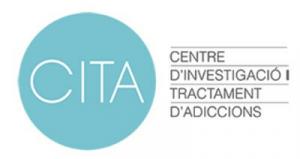What is family therapy for Eating Disorders like?
When psychological treatment is carried out on an eating disorder in girls and adolescents, it is essential to carry out therapeutic sessions with the family, since it is essential to get the support of your family to facilitate the recovery of the patients.
Family therapy for eating disorders (TCA) can be a good solution to treat these psychopathologies in adolescents because the effects of this class of disorders are not limited to the person who suffers from them, but also tend to affect their family nucleus, in such a way that EDs can cause certain difficulties in the coexistence.
Therefore, although the intervention focuses mainly on patients suffering from some type of eating disorder, it is important to support from their parents for a faster and stronger recovery, so there will also be a greater chance of avoiding future relapses.
We'll see now What is this model of family psychotherapy applied to eating disorders?as well as its structure and objectives.
What is family therapy for eating disorders?
In younger patients with eating disorders, the most recent guidelines on psychological treatment recommend the use of family therapy, the most popularly known as "Family Based Treatment" or FBT (Family Based Therapy) that began to be developed by a team of professionals from Maudsley Hospital in London in the 90s, being a therapy that requires the work of a multidisciplinary health team, which includes a psychologist and/or psychiatrist, medical and nursing staff, and a specialist in nutrition.
This model of therapy is based on the fact that parental involvement and support during treatment is essential for therapy to work and the patient can successfully overcome the eating disorder. In addition, another of the objectives during the sessions is to strengthen the resources of the patient's parents in order for them to support her daughter in the change towards a lifestyle and a relationship with healthy food, in order to avoid having to resort to hospital admission.
It should be noted that it is very important that parents learn to separate the eating disorder from their daughter's identity, so that said disorder is externalized and they do not blame her daughter for her way of behaving with respect to eating and appearance physical.
FBT is a therapy model that has shown good results with two thirds of parents and adolescents agreeing to this treatment, achieving complete remission of eating disorder in 40% of cases, having relapses in the rest, which does not mean that all is lost, since there is always the possibility of trying again or resorting to another model of psychotherapy, such as cognitive-behavioral therapy applied to conduct disorders food.
Among the reasons for the failure of this modality of therapy are the following: lack of support in the treatment by the parents and their unavailability to accompany their daughter to the sessions of therapy.
- Related article: "Keys to understanding eating disorders"
Objectives and techniques used in this psychotherapy
For family therapy for eating disorders to work, it is important to keep in mind throughout moment the objectives of the treatment and that the psychotherapist uses a series of techniques that facilitate the achievement of the themselves.
1. Goals of family therapy for eating disorders
The fundamental objective of this therapy is, in addition to achieving eating habits and a healthy weight, to promote communication patterns between the parents and her daughter, so that they help their daughter to achieve the goals of therapy, feeling supported and understood by her parents.
In turn, you must work skills strategies that allow emotional regulation in situations that generate frustration and anguish in the patient. For this, the way to express her emotions in an adequate way must be taught and this is achieved by expressing her feelings and ideas more clearly. This way her parents can better understand what is happening to her daughter and, at the same time, she will feel more understood.
Clear interpersonal boundaries must be established between family members, supporting parents and also promoting the autonomy of her daughter in those cases in which it is necessary for her to have a little more freedom.
In addition, jointly, with the parents and their daughter, the advantages and disadvantages of solutions to problems that may exist in the family should be sought. For this it is important analyze the way each family member perceives problems and thus be able to work on an individual style of constructive coping with said problems.
It is important to set realistic goals for family therapy and to establish a step-by-step way of approaching problems and seeking solutions.
As in any modality of psychological therapy, it is very important to establish a good alliance with all members participating in it, in order to develop in a therapeutic environment that facilitates the process of improvement. Within this environment, the family must strengthen a structure of mutual support among its members to face the treatment in order to achieve the successful overcoming of the therapy, as well as any type of problem that arises in the future.
It is essential that family therapy for eating disorders be carried out by a psychotherapist specialized in systemic or family therapies so that the treatment can be carried out correctly.
- You may be interested in: "Family therapy: types and forms of application"
2. Intervention techniques most used by psychologists in this type of therapy
One of the most used techniques in this family therapy is active listening by the therapist, in order to facilitate understanding and showing interest in the patient and her parents, so that they feel that they are being understood by the psychologist.
The psychologist should encourage the patient to recognize her personality traits and the factors that are hindering the recovery process.
It is important to work on training expressions of support between parents and their daughter through behavioral tests that must be explained in detail by the psychologist beforehand, using modeling techniques, repeated practice, feedback, and generalization.
Family therapy for eating disorders is a structured treatment, whose sessions have already been scheduled according to previously and, therefore, the sessions and the steps previously scheduled must be fulfilled, so it does not give rise to the improvisation.
- Related article: "What is psychotherapy? Main characteristics of this process"
Phases of family therapy for eating disorders
This therapy lasts approximately between 6 and 12 months, depending on the severity of the symptoms, as well as the response to treatment, among other factors and; on the other hand, it is structured in 3 phases, which are divided between 10 to 20 sessions, depending on the needs of each particular case. Being able to lengthen in some cases where necessary.
1. Full parental control
This first phase of family therapy for eating disorders It consists of the first 10 sessions, which are carried out with the frequency of 1 session per week..
The main objective in this phase is to provide the necessary support to the parents of the young woman with an eating disorder so that they promote the restoration of correct and healthy eating habits in your daughter, as well as a healthy weight, especially when she suffers anorexia nervosa and her weight is far below what it should be for her height.
Throughout the entire process of psychotherapy, you must also work with any emotional aspect that could be causing the patient discomfort (for example, symptoms of anxiety, depression, addictive behaviors, etc.).
- You may be interested in: "The 4 educational styles: how do you educate your children?"
2. Gradual return of control to the adolescent
This phase covers the following 6 sessions, which are carried out with a frequency of 1 session every 15 days, after completing the first phase, starting when eating habits and weight are nearly normal within margins that could be considered healthy.
Throughout this phase, attempts should be made to reduce the need for parental supervision and it is the daughter who must progressively begin to take responsibility for a correct eating style.
3. Establish healthy independence
This third phase usually lasts 3 or 4 sessions, with a frequency of 1 session per month or every 3 weeks, and begins when eating habits and weight have normalized, without there being any risk to the health of the patient.
During these last sessions The therapy will be focused on psychological aspects related to the construction of the patient's identity..
Likewise, during this phase the family should also be supported in their process of adaptation to the life cycle crisis that could entail the fact of having to adapt to the demands of his adolescent daughter to have greater independence, always within limits reasonable.
Maudsley Hospital Family Therapy Modules for Eating Disorders
This family therapy model is made up of four modules, each of them being prepared to achieve different objectives.
1. Module for correct feeding relearning
This module seeks to restore a healthy eating style, focusing on a varied and balanced diet, understanding the pleasant and social aspects that food has for people.
2. Module for rehabilitation
Here we work fundamentally with the erroneous cognitive biases that patients usually have with respect to food, body image, self-image, etc.
3. Module for reward-emotional system
In this module the main objective is to search in the patient the balance of the avoidance-approach emotional system.
4. Module for psychoeducation
Psychoeducation and the teaching of communication skills are carried out, with the patient being accompanied by her parents, with the aim of avoiding confrontation with the patient and thus help alleviate the psychological discomfort that is suffering.


